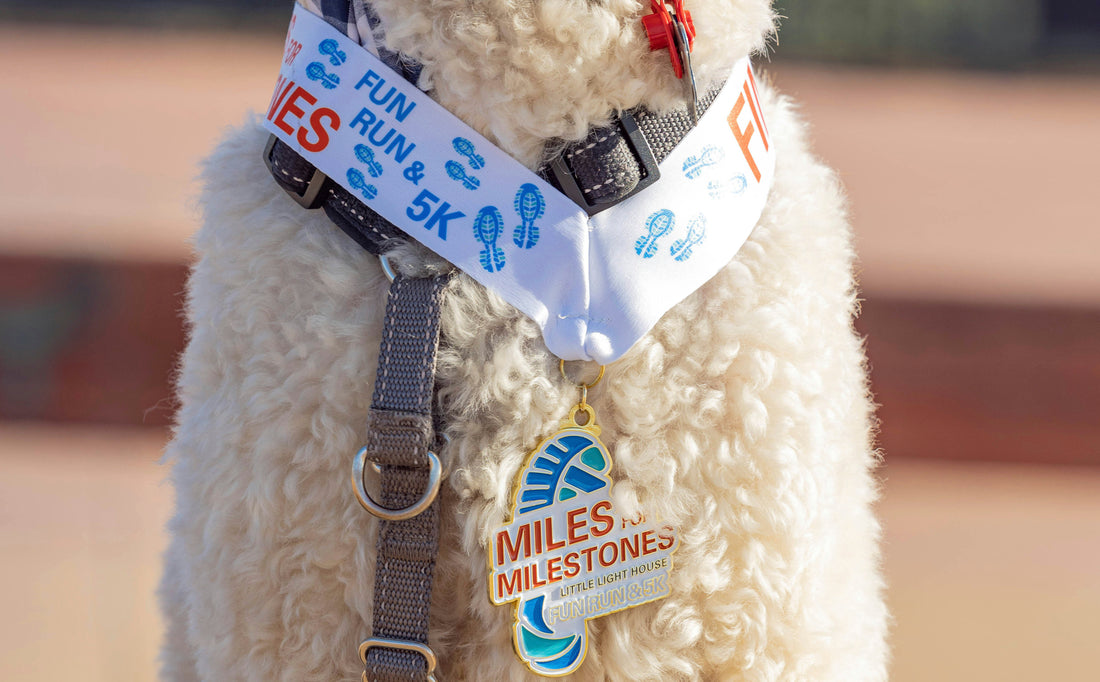Introduction: Hey there, aspiring runner! It's Scott Papek, the owner of Run Slower, here to share my journey as never running to a race finisher. As someone who has struggled with weight my entire life and doesn't fit the typical "runner" mold, I'm here to tell you that running is for everyone, regardless of size or shape. I ran my first 5k at 48 and my first marathon at 52. Running your first 5K, half marathon or marathon is not just about the physical challenge; it's also about developing a strong mindset that will carry you through the ups and downs of your training journey.
But before we dive into the training plan and mindset tips, let's talk about the most crucial aspect of your running journey: finding your WHY and focusing on finishing authentically, not on your time or comparing yourself to others.
Finding Your Why: Your "why" is the driving force behind your decision to start running and train for your first race. It's the reason that will keep you motivated, even on days when you feel like giving up. Your "why" is unique to you and can be anything from wanting to improve your health to proving to yourself that you can achieve a goal or even to honor a loved one.
For example, my "why" was to increase my health and wellness to put myself in a position to be there for my family for a long time. As someone who has faced weight challenges, I realized that by taking care of my physical health through running, I was investing in my future and ensuring that I would be around to support and cherish my loved ones for years to come. Whenever I felt like skipping a run or doubting my abilities, I reminded myself of my "why," and it gave me the strength to keep pushing forward.
Take some time to reflect on your own "why." Write it down, and keep it in a place where you can see it every day. When the going gets tough, remember your "why," and let it be the light that guides you to the finish line. Here is a great place to start:
To (insert your Action) so that (insert your Impact)
Focus on Finishing, Not Timing: At Run Slower, we believe that running is not about achieving the fastest times; it's about crossing the finish line with a sense of accomplishment. Every finisher is a winner!
Avoid Comparing Yourself to Others: One of the biggest pitfalls for new runners is comparing themselves to others. It's easy to get caught up in the trap of thinking you're not good enough or fast enough when you see other runners seemingly effortlessly gliding by. But here's the thing: everyone's running journey is unique. Don't compare your chapter one to someone else's chapter twenty. Focus on your progress, celebrate victories, and run your own race. I always remind people that “other people” are too caught up with themselves to notice you.
Embrace Your Body: I know firsthand how intimidating it can be to start running when you don't feel like you fit the "runner" stereotype. But here's the truth: there is no one-size-fits-all runner's body. Runners come in all shapes, sizes, and abilities. Embrace your body for the incredible things it can do, and celebrate every milestone along the way. Remember, your body is not an obstacle to your running journey; it's the very vessel that will carry you across the finish line.
Hal Higdon's Training Plan: Hal Higdon is an American writer and runner known for his training plans. He is the author of 34 books, including the best-selling Marathon: The Ultimate Training Guide. I've only used his training programs for all my race distances. This Novice 5K Training Plan is designed for beginning runners or for runners who want to take a low-mileage approach to their training. It's a mix of running, walking, and rest days, gradually increasing the distance and intensity each week.
Never run before? This one's for you. This program works best if you have a goal 5K in 8 weeks. Set that race as your end date and use it as a focus of your training. Even if you do not have a goal 5K at the end of 8 weeks, Hal Higdon's 5K Novice program is a great way to begin your life as a runner.
Rest: Rest days are as vital as training days. They give your muscles time to recover so you can run again. Actually, your muscles will build in strength as you rest.
Run: Don't worry about how fast you run; just cover the distance–or approximately the distance suggested. Ideally, you should be able to run at a pace that allows you to converse comfortably while you do so.
Run/Walk: There's nothing in the rules that suggests you have to run continuously, either in training or in the 5K race itself. Run until fatigued; walk until recovered.
Walk: Don't worry about how fast you walk, or how much distance you cover. Begin with about 30 minutes and add 5 minutes a week until you peak with a full hour in Week 7.
The following schedule is only a guide. Feel free to make minor modifications to suit your work and family schedule.
Mindset Tips:
- Embrace the energy boost: After a few weeks of consistent training, you'll notice an increase in your energy levels. Embrace this newfound vitality and use it to fuel your runs and daily life.
- Accept the challenges: Most runs will not be fun. Remember your why and embrace the challenging runs as opportunities for growth and mental resilience. We are just striving for progress.
- Prioritize consistency: Even if you have to walk, make sure to get your miles in each week. Consistency is key to building endurance and establishing a strong running habit. Plus, it's a great excuse to buy some cool run slower hats!
- Fuel your body: Avoid restrictive dieting during training. Instead, focus on nourishing your body with wholesome, nutrient-dense foods that support your running goals. Carbs are your friend
- Experiment with carbohydrates: Carbs are essential for runners, but everyone's needs are different. Try various sources like fruits, vegetables, whole grains, and legumes to find what works best for you.
- Treat long runs as race day: Each week, approach your long run as if you were an elite athlete. Plan your meals, focus on mobility and recovery, and mentally prepare yourself for the challenge ahead.
- Have a quitting contingency plan: There will be moments when you want to quit mid-run. Create a playlist, audiobook, or podcast that you only listen to during runs to keep yourself engaged and motivated. And if all else fails, just think of your WHY.
- Embrace the journey: Remember, training for a 5K is not just about the race itself; it's about the journey of self-discovery and personal growth. Embrace the process, celebrate your progress, and don't give up. You've got this, and I'll be cheering you on every step of the way!
Conclusion: Running your first 5K is an achievable goal with the right training plan, mindset, and most importantly, a strong "why." As someone who has faced weight challenges, I'm here to tell you that running is for everyone, regardless of size or shape. By finding your "why," focusing on finishing authentically, avoiding comparisons to others, embracing your body, following Hal Higdon's Novice 5K Training Program, and incorporating these mindset tips, you'll be well on your way to crossing that finish line with pride. And don't forget to grab one of our Run Slower Trucker hats to look kick-ass while you're at it! Remember, every step forward is a victory, no matter how small. And don't forget to have fun along the way – running is just a fancy way of playing outside! Happy running, my friend.



